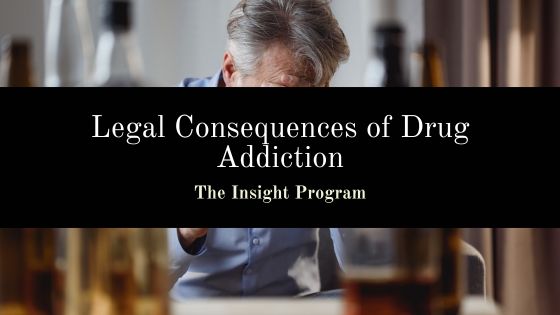Drug addiction is a pervasive issue that not only impacts an individual’s health and relationships but also has significant legal consequences. The intersection of addiction and the legal system is complex, often leading to a cycle of criminal behavior, arrests, and incarceration. Understanding these legal ramifications is crucial for those struggling with addiction and their families.
1. Drug Possession
One of the most immediate legal consequences of drug addiction is the potential for arrest and prosecution for possession of controlled substances. Laws vary by jurisdiction, but in many places, even small amounts of illegal drugs can lead to severe charges. Possession can result in fines, mandatory drug education programs, community service, probation, or even imprisonment. The severity of the penalty often depends on the type and amount of drug, as well as the individual’s criminal history.
2. Drug Trafficking and Distribution
For those involved in the sale or distribution of drugs, the legal consequences are even more severe. Drug trafficking charges carry heavy penalties, including lengthy prison sentences and substantial fines. These charges can apply regardless of the amount of drugs sold, and even having a large quantity can lead to trafficking charges under the assumption of intent to distribute. Trafficking laws are stringent, reflecting society’s strong stance against the spread of illegal drugs.
3. Driving Under the Influence (DUI)
Driving under the influence of drugs (DUI) is another common legal issue faced by those with addiction. DUI laws are strict, and being caught driving while impaired by drugs can lead to license suspension, fines, and jail time. A DUI conviction can have long-lasting effects, including increased insurance rates, difficulty finding employment, and a permanent criminal record. Repeated offenses lead to harsher penalties, further complicating an individual’s path to recovery.
4. Child Custody and Family Law Issues
Drug addiction can significantly impact family life, especially in matters of child custody. Courts prioritize the well-being of children, and a parent’s addiction can be grounds for loss of custody or visitation rights. Even allegations of drug use can trigger investigations by child protective services, potentially leading to temporary or permanent removal of children from the home. These emotionally draining legal battles can hinder an individual’s recovery process.
5. Employment and Housing
A criminal record stemming from drug-related offenses can have far-reaching implications for employment and housing. Many employers conduct background checks, and a history of drug charges can be a barrier to job opportunities. Similarly, securing housing can be difficult, as landlords often screen potential tenants for criminal records. This creates a challenging environment for individuals in recovery, as stable employment and housing are critical components of rehabilitation.
6. Financial Consequences
Legal battles, fines, and court fees add to the financial burden of drug addiction. Legal representation is costly, and court-imposed fines can be substantial. For individuals already struggling with the financial impacts of addiction, these additional expenses can be overwhelming. The financial strain can lead to further criminal behavior as individuals seek ways to support their addiction or pay off legal debts.
7. Rehabilitation and Legal Support
Many legal systems are recognizing the need for rehabilitation over punishment for those with drug addiction. Drug courts, for example, offer an alternative to traditional criminal courts by focusing on treatment and recovery. These courts often provide access to rehabilitation programs, counseling, and support groups, aiming to address the root cause of addiction and reduce recidivism. Legal support services also play a crucial role in helping individuals navigate the complexities of the legal system and access necessary resources for recovery.
Conclusion
The legal consequences of drug addiction are extensive and multifaceted, affecting various aspects of an individual’s life. From criminal charges and imprisonment to challenges in employment and family law, the legal system’s response to drug addiction underscores the need for comprehensive support and rehabilitation. Addressing addiction through a combination of legal reform, education, and accessible treatment can help break the cycle of addiction and lead to better outcomes for individuals and society as a whole.

